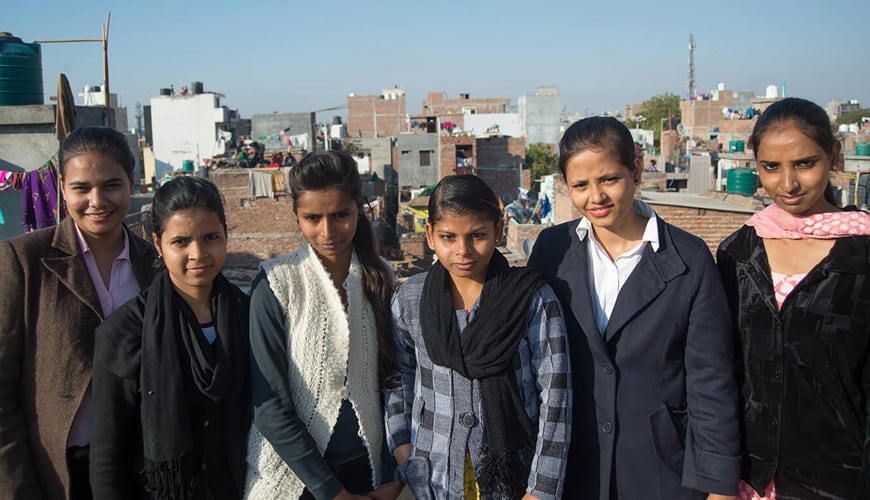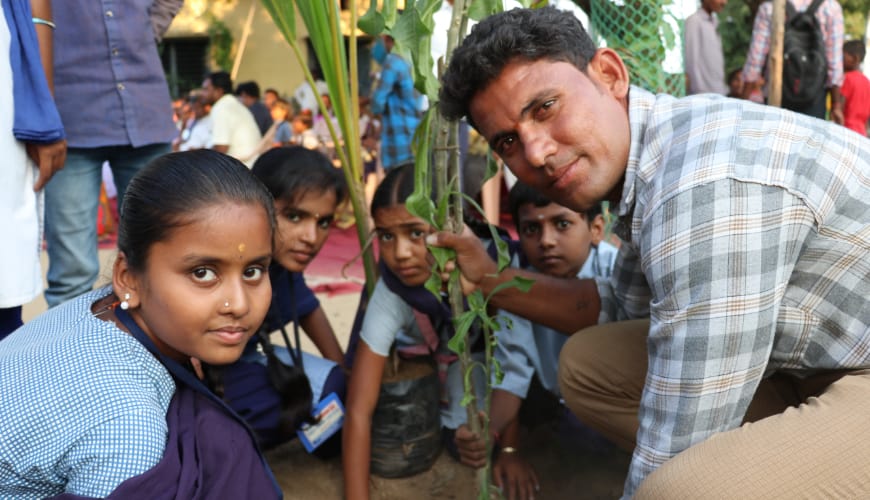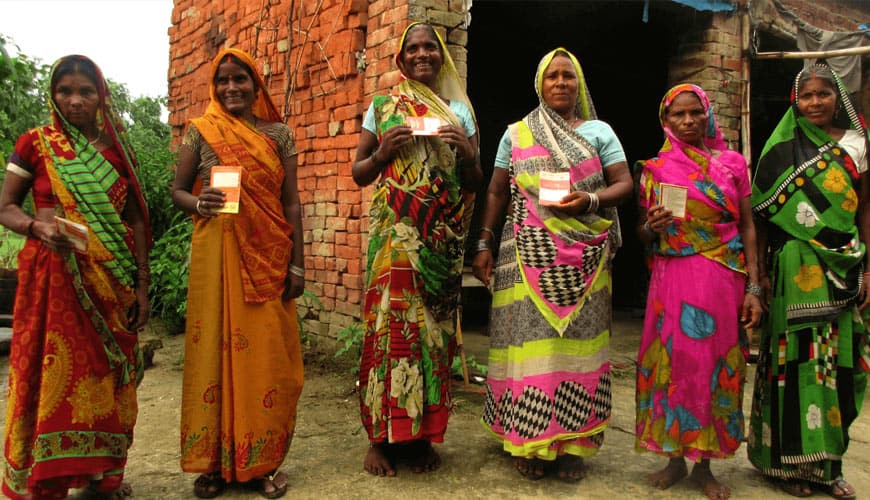Supporting underprivileged youth to achieve career aspirations through skilling and entrepreneurship

Plan India’s Saksham Training Centres across various locations in India are full of young men and women avidly taking notes as trainers impart market-aligned skills training. In one section of the centre, program participant learn about domain skills and in another section they are sensitised on gender relations in their personal spaces, within their communities and workplace. In another corner, girls can be seen engaging in discussion to mull strategies to convince their families to let them work. In the beehive of activities, they are also taught resume writing, interview techniques, and other soft skills.
Started in 2010, Saksham focuses on ‘Neither in Education, Employment or Training (NEET)’ youth, especially girls, from urban and rural disadvantaged areas. The initiative arms them with free, market-oriented job and entrepreneurial vocational skills. With support from corporates, Plan India’s mission is to provide access to gainful employment to young girls and men in the age group of 18-24 years while also grooming today’s youth as representatives of a gender-just society. The programme also goes several steps further and includes basic IT skills, presentation, etiquette and basic business conversational skills in the training. Saksham engages parents, communities and employers on the subjects of gender equality, equal opportunities and economic empowerment of girls and women. The programme also provides linkages to employment for mainstreaming their participation in socio-economic development.
Saksham was carefully designed after gathering market intelligence, researching available jobs and identifying the skill gap. Market studies helped identify viable and potential trades for vocational training. Local employers in these sectors were then engaged to gather skill requirements and gaps, which formed the basis of the training courses. Creating awareness among young people about job opportunities in the market, providing career counselling and imparting skills to negotiate with families, communities and employers are integral part of the training.
Apart from experiential learning before placing its young graduates in jobs, Saksham mentors them through the first six months of employment to ensure that there are no dropouts. The programme also focuses on gender mainstreaming by taking care of particulars like evaluating the safety of the location and timings of not just their own training centres, but also of the places of employment of the young girls.
Saksham is located within communities it serves, to address the challenges raised by limited mobility for girls. Working closely with training and implementation partners, Plan India leverages the trust they have built over the years with communities to lower resistance to the idea of girls seeking employment and bring about social behavioural change from within the communities.
As next steps, under the project, people who are involved in mobilising, skilling, job placement and preparedness work, along with involved in and post placement handholding work, have come together, along with Plan’s experts, to develop a handbook which provides guidelines on skill development programming and adds to the National Skilling Agenda. This is now Saksham Plus, as it beings the added dimension on youth economic empowerment in the country by “Centres of Excellence”.
The success of Saksham lies in creating an informed and empowered youth that seeks to create an equitable, economically secure and sustainable future for themselves and their families. Girls who graduate from Saksham gain the skills for not just gainful employment, they are enabled to make decisions and negotiate their rights with peers, parents and employers.
Highlights
- 200,000+ youths were provided job-oriented vocational and entrepreneurship training.
- 60% of trained young people were girls.
- 75% of the trained youth were placed in jobs including self-employment, of which 71% were girls.
- Over 90% of the trained young people joined higher/next-level education post-training.
- 300,000+ young people were supported with career counselling.








